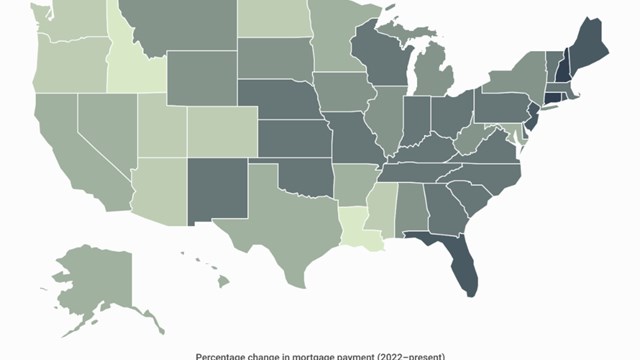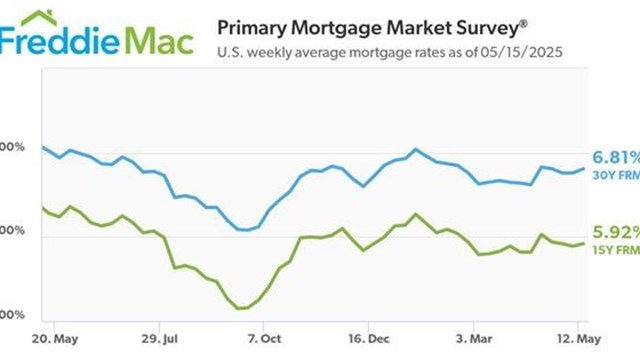Shopping is not a spectator sport. At almost any level, from books to stocks to brokers, it involves fulfilling desires, meeting needs, negotiating price and choosing suppliers. There is no guarantee of success, and as the price of the purchase goes up, so do the stakes - making the amount of research and advance preparation more important. Having the right professional by your side may be the best investment you can make to assure the best results, especially in the highly competitive game of New York City real estate, where it's common for both the apartment buyer and the seller to retain the services of separate brokers to facilitate their search for a home - or for a buyer.
What's A Seller To Do?
So who is the right broker? And how does one go about finding him or her? In a city of tremendous choice, that task alone can seem overwhelming. The advent of Internet technology, online listings, and the specialization of certain brokerage firms mean that the options are greater than ever. And that's a good thing.
According to Steven James, senior executive vice president at Prudential Douglas Elliman, "The Internet has been a great leveler." A seller can go to the individual Web sites of brokers around the city and do a great deal of research before ever making a personal introduction. "If you have an idea of what your property is worth," continues James, "do a search, read through the listings, read the bios and compile a list of brokers to interview."
It can be a great timesaver - eliminating brokers or firms that simply don't meet your criteria - as well as introducing you to others you may not have even considered before. "The New York Times online service has become a great resource for us," says Benjamin Barshay, co-owner of Barshay Brokerage Inc. and co-chair of the Small Firm Committee of the Real Estate Board of New York (REBNY). The Times has widened coverage, providing what Barshay calls "the greatest thing for a seller in almost every case - exposure."
It's All About Exposure
Exposure is certainly what selling is all about. And while suburban, residential properties get maximum bang for their exposure buck on the Multiple Listing Service (MLS), New York City properties generally rely on computer access and regulation to point them in the same direction. Since the January 2003 enactment of the 72-hour mandatory co-brokering rule, any brokerage wishing to remain a member of the well-respected Real Estate Board of New York (REBNY), must communicate (usually by fax or e-mail) all new listings to other brokers within three days. Approximately 120 residential firms of all sizes and descriptions belong to REBNY, and Steven Spinola, the group's president, estimates that 99 percent of the activity in Manhattan's co-op and condo market is backed by REBNY member-brokers.
This policy allows maximum exposure of properties new to the market, thus helping buyers and sellers alike to break through what The New York Times recently called "Manhattan's historically clamped-to-the-vest brokerages." On top of that, being online has opened up a whole new world to buyers and sellers, offering more exposure at more times and in more places. Not only that, but if a seller requests that his or her property remain the exclusive listing of a certain broker, REBNY waives the co-brokering rule. So both the proponents of exposure and exclusive listings can have it their way.
Still, Manhattan maintains a fairly unique position. "Listing agents have to be more involved," says Barshay. A broker can't just put a lockbox on a door in a large building and forget about it. Nor can brokers access co-op information as quickly and easily as they might like, since their ownership rights are treated differently, leaving important data out of the public domain. Still, brokers have their ways of gathering information from management companies and sales comparables within a building or neighborhood. Faith Hope Consolo, vice chairman of Garrick-Aug Worldwide offers some insight, "One thing we can't control is the [real estate market]. It's like the stock market - driven by emotion."
"But," she continues, "A broker must work for a company with resources, and a track record in that particular price range or size range." While a licensed broker herself (specializing in retail), she quickly offers, "Even I looked for a specialist when I sold a condo and co-op once." The key, for sellers, is finding a broker that is educated enough, motivated enough, thoughtful, experienced enough and ethical enough to provide the exposure needed to bring in the sale.
The Personal Touch
"This is a personal service business," says Norm Ellis, owner of The Ellis Group Ltd., in Flushing. "It comes down to how diligent someone is going to be."
Comfort levels are critical, since as James says, "Contact [between seller and broker] is daily, if not multiple times a day. The expectation is for the broker to give feedback, keeping the seller up to date." Keeping track of hot prospects, advertising, and open houses is the broker's responsibility. And regular calls from your broker will keep you both on the same page. "If you have someone who's a candidate and you just don't think they'll sell your property, it's not the right broker," advises James.
And, according to Barshay, it helps if the broker has an affiliation with a major real estate organization, such as the National Association of Realtors (NAR), the Manhattan Association of Realtors (MANAR) or REBNY. "For someone who is trusting their greatest asset to a complete stranger," says Barshay, "the ethical and professional standards that such associations require give the seller an added bit of confidence - universal behavior that meets some level of professionalism, and a possible avenue for recourse, should a problem arise."
Consolo believes that an exclusive listing - in which that the broker who is retained is the one who makes the deal - is the most motivating to brokers. "They are going to pay attention to that property," she says, "even if they have to cut the deal five ways."
Asking Around
As they say, the best predictor of future behavior is the past; so positive, word-of-mouth referrals may still be one of the best routes for broker selection. So is research into a broker's sales trends, asking for personal referrals, and speaking with former clients. "Ask a broker about their experience within the price category, examples of the ads they've written, and things they've done for other sellers," says James, adding that, surprisingly enough, few people do this.
Also get a feel for how busy a broker may be, and where your property may fall in their order of priority. Will you be treated as a VIP, or will your phone calls disappear into the ether?
Much of this comes down to information and instinct - how two people click and how much trust can develop. And, this is a concern, regardless of the size of the brokerage firm. "Look up the manager of each brokerage office you are interested in," advises James, "Have a conversation on who they would recommend." And remember to discuss how things will be marketed, when, where and how, what the commissions are and how they'll be paid. The broker will tell you what the commission will be (usually around six percent of the sale price), and they will work out the details with other brokers who may likely show the property. "Marketing to other brokers is as important as it is to buyers," Barshay claims. Some studies indicate that up to 80 percent of real estate deals are co-brokered - a good chance that others will bring the buyer in."
The importance of getting things in writing should not be overlooked. In the contract, it will be stated just what type of services the broker will provide, over what period of time and details regarding commissions. Commissions are always paid after the sale has transpired, but payouts vary from transaction to transaction. "The broker sets the amount of commission to be paid. It's illegal to have a standard," says Ellis. Find out in the beginning what the total commission will be, since that will affect your net, but a good broker will insulate you from the details. According to one broker, sellers don't generally see the other co-brokers who may have actually closed the sale - at least until closing.
Problem-Solving
"If you have a property sitting on the market today that's not moving, you are probably overpriced," James says. It's one of those big problems that brokers and sellers need to resolve right up front. Barshay jokes that everyone wants more than they should get, which is why gathering comparable sales figures on similar residences in similar neighborhoods is a key piece of pricing information. And Consolo says that most of the conversations between brokers and sellers are about money, and women are especially uncomfortable talking about it - which can get in the way. Therefore, sellers need to balance their desire for big bucks with some practical advice from the broker, the reality of the market, timeline, and exposure. Overpricing will cost time for both seller and broker; leaving a property on the market far longer than it should. It will also preclude an entire potential buying group that would be present at a more realistic selling price. Ellis believes that "people think that something is wrong with a property if the price starts dropping," even if it winds up where it should have been in the first place.
Despite best efforts, there is always the chance that what was promised is not what is delivered. Being unavailable, misrepresenting the property, and seemingly "˜doing nothing' are probably the biggest complaints sellers have about disappointing brokers. It would seem that what is best - as with all personal relationships - is to re-check expectations on both ends. Sometimes, things are not what they seem and a good talk can iron out any misunderstandings. It helps to remember that the broker is working not only with you, but also for you. You have the ultimate authority to make a decision to change or end a relationship when necessary.
In the end, if folks are as diligent about choosing relationships with brokers as they are about shopping for their next car, High Definition TV or espresso maker, they'll do the work upfront - making it possible to kick back, enjoy their new residence or profits from their sale, and become merely a spectator once again.
Chrysa M. Smith is a freelance writer and one-time condo owner now residing in Bucks County, Pennsylvania.






Leave a Comment